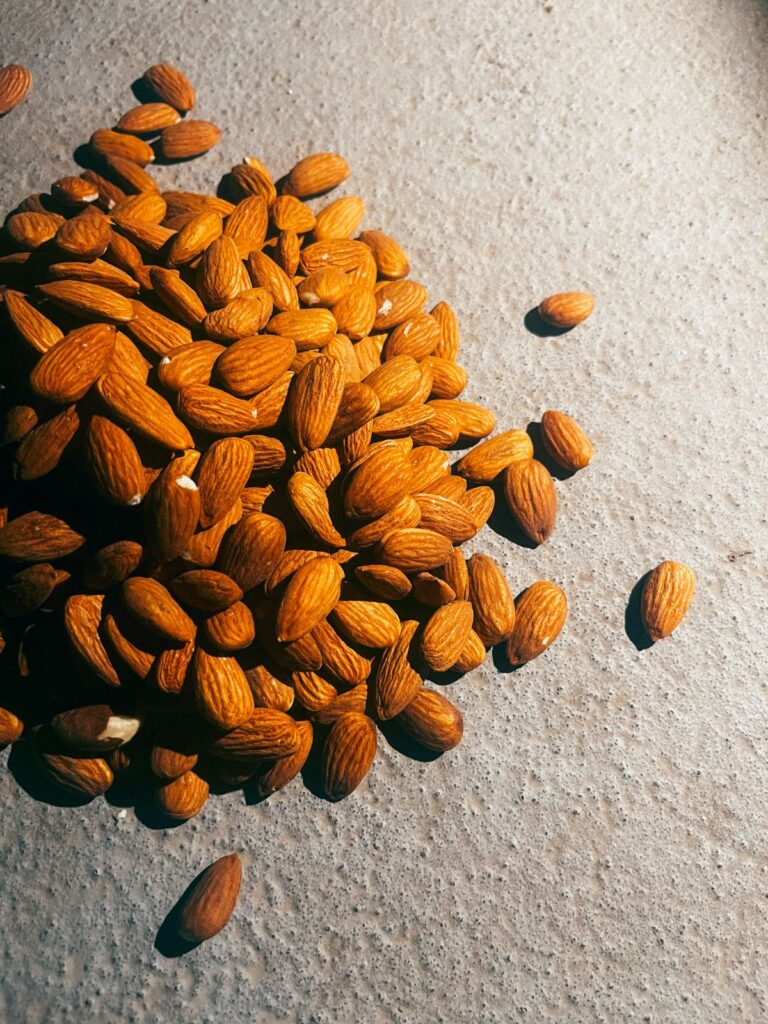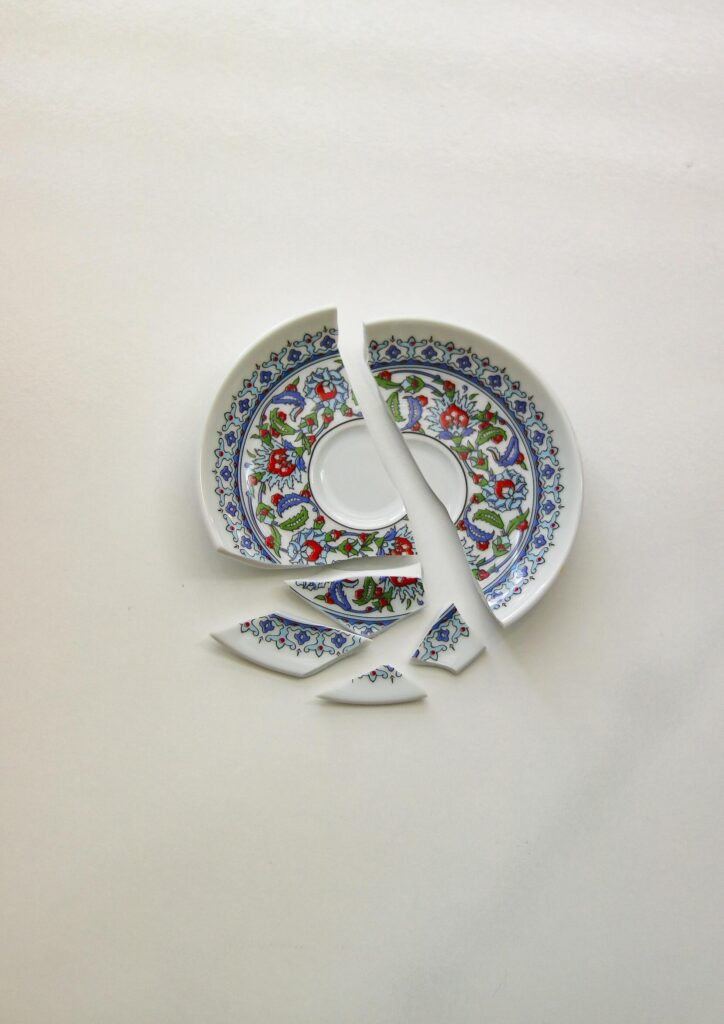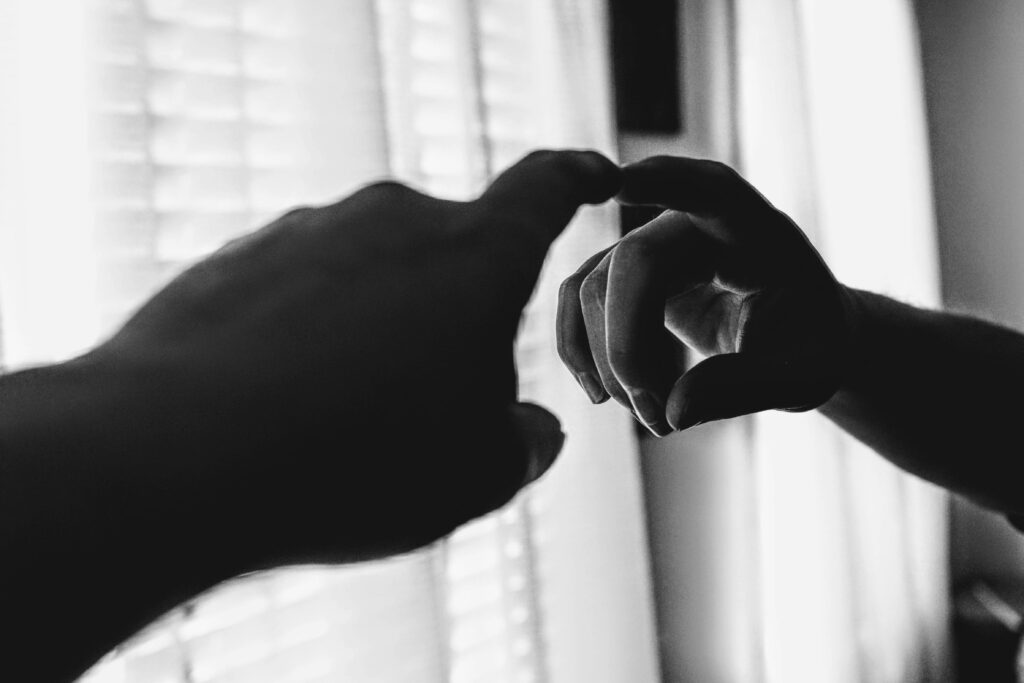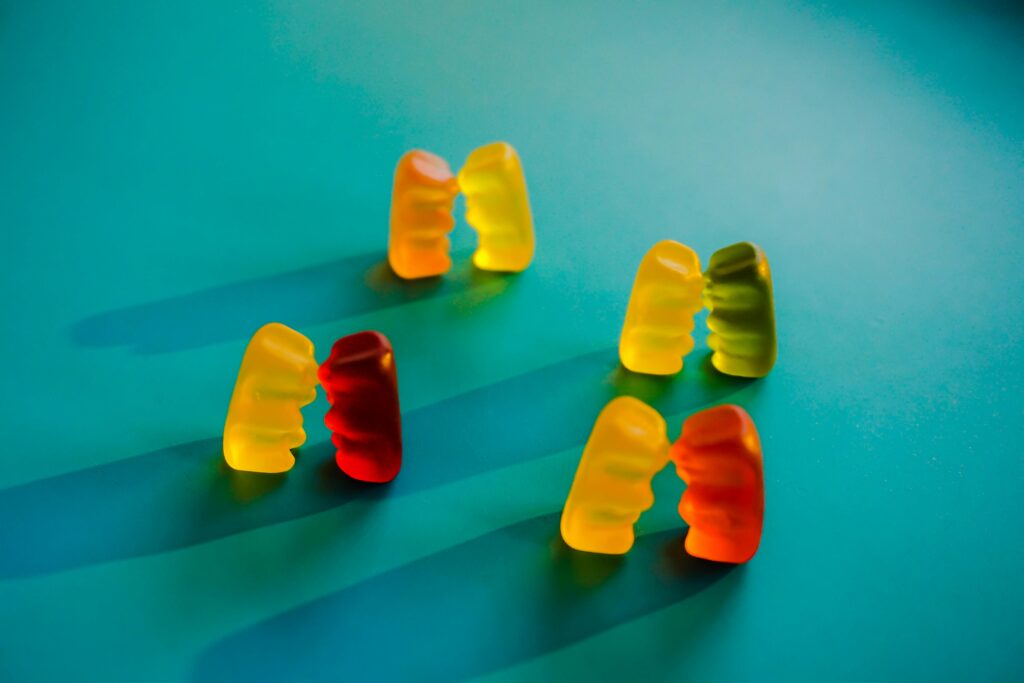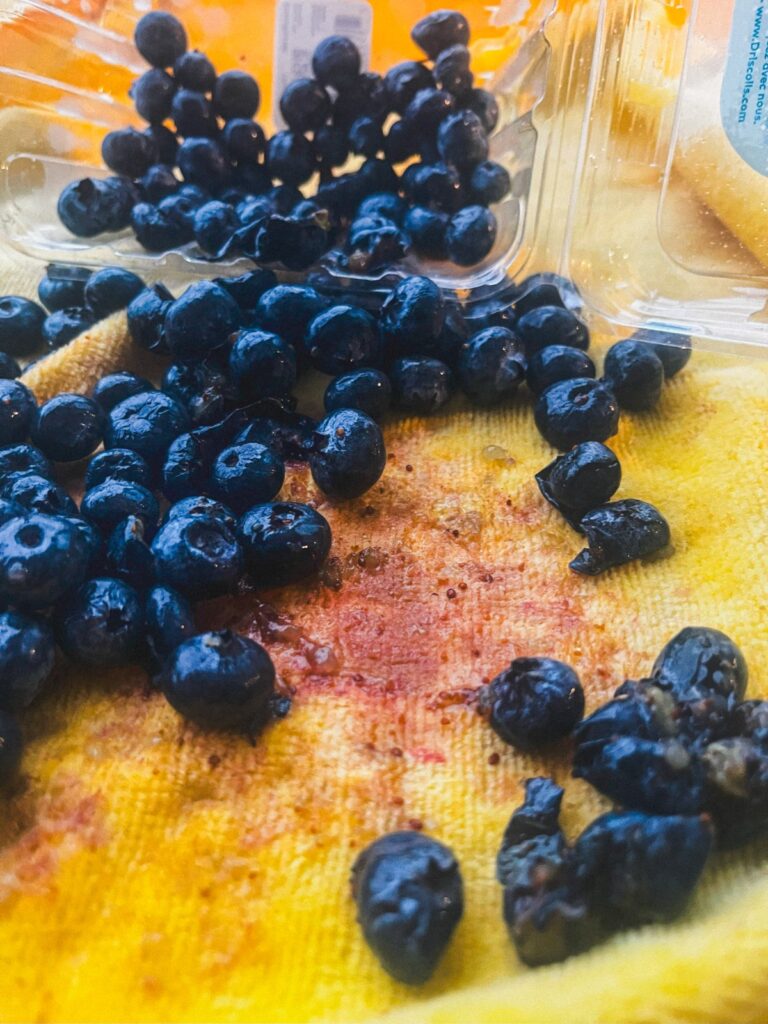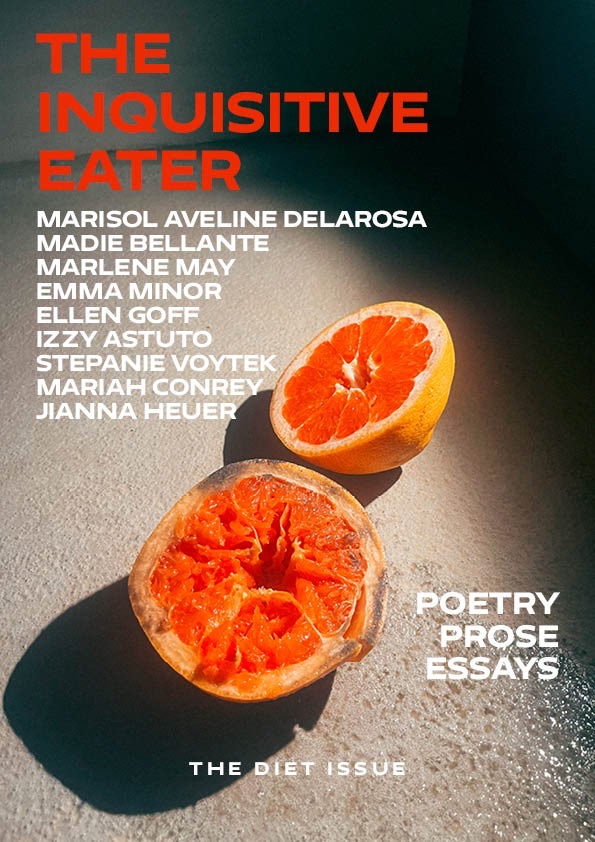2023 was for Girl Dinner. I, you, we as girls ate Girl Dinner most nights of the week, if “dinner” can be at midnight hovering over your desk, debating whether to: read that book, doomscroll IG, watch that half-hour comfort show, or watch that one-hour show you’ve been meaning to start for ages but honestly it’s the riskiest of all your options because it means going to bed late late, like 3-a.m.-not-2-a.m.-garbage-crew late, which is when you’ll know you’ve really messed up. Of course, by the time you decide, you’ve already finished your Girl Dinner.
Men think Girl Dinner is a diet, an attempt by women to eat less. While food always involves a deeper discussion about a patriarchal system dependent on valuing small women, Girl Dinner is no diet. Girl Dinner is resistance, rebellion, and rejection all in one. It is a manifesto, screaming I choose me. Girl, not matriarch or provider or gatherer or cook or girlfriend or wife or partner or second or third or fourth. Girl, only. Only girl.
But 2024 is for the original Girl Dinner, the beast finally awakened from its slumber to rear its hungry head and collect its due: Only Daughter Dinner. Interchangeable with Oldest Daughter Dinner. Firstborn. Don’t let it trick you, ODD is both nuanced extension of and ancient precursor to 2023’s Girl Dinner. And like all great cuisine and flavor landscapes women were mapping before men were tasting, for ODD, the same pillars exist: Salt, Fat, Acid, Heat. Thank you, Samin Nosrat.
Salt is your best friend. Your blood pressure is too high at all times, according to the doc who will take your insurance today but not next week. Your blood pumps like mad at all hours, from your commute to work to the gym to your sixth-floor walk-up where there is no space for more than a square foot of countertop, so there is no space for rest. But that’s okay. You’re out and about anyway. Those Go Getter genes are strong, probably inherited like the blood pressure. But you’re a Do the Most Barbie who gives 100 percent because anything less is failure. Your heart pumps to the beat of best when busy. But diamonds form under pressure, so pump pump, girl. Like the creepy guys at the bodega, the demons won’t catch up if you walk faster. High blood pressure must offset that terrible circulation, right? The kind that leaves your fingers numb because your nervous system, the little shit, started asking for help as soon as you began staying up late to maintain that high school GPA. Pump pump. It’s okay, though, because the best flavors in life start with salt, right? Salt that meat. Hammer it into the uncooked flesh so what’s tender soon wears an armor of crusty salt. Any piece of meat can be saved with some good salt. Besides, it’s the only flavor you’ll allow yourself anyway. No calories, all natural. Give it a fancy name like Maldon that sounds French (but isn’t) and it becomes a cool girl, so she’s hip. Who needs butter or olive oil or cheese? Who needs honey when the blood is flowing? Pumping. Only child or firstborn daughter, you don’t grow up with weak blood. Your veins are tight and full of the emotions you keep pressed down, preserved under your briny skin, but what’s a little compartmentalization when you don’t want to intrude on anyone else’s flavor? Low pressure equals low effort, but it’s okay. Salt to taste and do it again, just to be sure. After all, it takes a salty bitch to survive this long, to be the first to leave it all behind.
Fat is your worst enemy. Loving or toxic parents, doesn’t matter, only child means only empty plates. Growing up, you’re a good daughter who finishes her plate at home but faces the consequences in the dressing room. There is no pushing around food to disguise how little you’ve eaten, no hiding your odd mealtime peculiarities and eccentricities, but lord, don’t call it an ED or OCD or ADHD. Not at the table, please. She’s a big girl, a growing girl, she needs a little fat otherwise she’s skin and bones. Boys don’t like skin and bones, at least not until it’s too late, the damage is seared in. So fat becomes your worst enemy because it means getting bigger, being seen, taking up space and for the love of god, can’t a girl just go unseen for a little while? Unexamined and out from underneath a microscope slide the exact size of a dinner plate? For once, not the pride-and-joy only daughter (and don’t you forget it). But like fat, genetics are your worst enemy. There are no sisters, only mother. There is no fighting your inheritance, so you inherit it all from the only other woman in the house. You inherit her restriction. The day is too busy to eat, after all. A girl boss girl-fasts. So the nighttime is for food, for comfort. Only when the day is over can you feed. Only when the tasks have been accomplished. Food is a reward for good behavior. Woof woof. You inherit the way your mother prods herself in the mirror, wears clothes to hide herself even though she tells you to speak up, don’t be shy, lean in, be assertive to be heard over the boys. You inherit her decades-long rivalry with fat—a war you didn’t start and most certainly one you won’t finish—before you even know the meaning of a calorie. You grow up wanting to be small until, surprise, you’re closing in on thirty and skinny isn’t cool anymore. Micro? Nah, macros are in. You try to keep up with the changing times (look ladies, we’re free!) and begin scrutinizing your body in a new way. Food is as abundant as self-hatred. You try to shed your learned bad habits, but like fat, it’s hard to starve what’s on the inside. So still, you settle for taking your butter in the form of Chardonnay. Wine doesn’t count. How much fat is enough? How much cushion, how many curves before men can’t read the map and refuse to ask for directions? Simple, they tell you. Fatten up until you get your period back. Healthy women are child bearers, and you’re the last in your line, Only Daughter. After all, no one trusts a skinny chef.
Acid is your favorite food group. When the voices inside your head that scream not good enough or do better and if you can’t do better at least Do More—when those voices aren’t nourished enough to put the hustle in your step on the uneven, rat-ridden pavement of the hectic city you traded home for, your favorite acidic friend Caffeine is there to help finish the job. You move to the Big Pond right after college, and after a few years, which turn too quickly into seven, and then a decade, you begin to understand just how hard it is to function in a city that prioritizes and celebrates thinness. One of the biggest reasons being that there is simply no space for people who take up space (oh, the irony). Strollers, wheels, crowded brains that need to breathe, you name it. So you chug your caffeine to keep going, but realize too late there are no more highs, only returns to a baseline, which goes against everything type-A firstborn daughters and only daughters and only children are taught to fear: the average. Coffee reins (rei(g)ns?) your diet because it’s too late to stop, so you think, well at least the caffeine will keep my appetite small. But your body is the only thing that will go through your whole life with you, and like you, it loves its habits. It learns to crave that other acid, the acid swirling in an empty stomach that screams I’m hungry. That acid wakes up with you after you went to bed on nothing but a bowl of cereal, for the nostalgia you say, but really it’s just because you know it’s what small girls like to eat. Flakes and pebbles for these gals, we eat to be Polly-sized so we can fit in the pockets of menswear since there are none to be found on our own clothes. That acid grows ravenous when you compare yourself to the other women on the street, on the line and online, satiated only when your brain feeds it thoughts like, Restriction just demonstrates control and I can be better if I just try harder. Eating disorder? No, she’s just fit. Health conscious. Organized. All oldest, only daughters are. It’s so easy to disappear in discipline. The acid just means the body is working, churning, burning. The hunger keeps you sharp. After all, who wants to grow all fat and happy.
Heat is the first flavor to disappear with you. You daughters, you firstborns, somehow always last to the firepit, the last to warm your hands and feast on the flame because there is always someone who needs your attention more than you do. The men cry frigid! And stiff! but you don’t care because at first, it’s an honor and armor, knowing you’re as cold on the inside as you are on the outside. Blue toes, white fingers. Everybody Loves Raynaud’s. Hair grows where it shouldn’t, little bastards you pluck on your chin from the PCOS (bless her heart, having children will be hard) and then the sheen of soft fur, i.e. your body’s attempt to keep you warm as you shrink yourself unnoticeable and out of the way, like the world’s worst winter coat for the world’s most self-destructive mammal. Not gonna lie—it feels good, for a while. A cold body is a simple body, an easily managed body. Freeze those eggs, right? Nothing tastes as good as dormant feels. Try warm foods, the doctors say. The oven is your friend. But by now, daughters know it’s a trap. Mothers and wives survived in the heat, which is why sons demand three hot meals a day. (Try some cereal, for chrissakes.) Daughters know warmth just means labor, and after all these generations, you’re exhausted with the baking and the cooking and the heating. We’re Tired Of It™. But don’t fret, soon your body begins to collect warmth in all the wrong ways because you never let yourself Get Heated on the outside. Fire has to burn somewhere and if the heat can’t breathe, it’ll settle for accumulating. The radiator in your shitty apartment certainly isn’t hot, so the only heat you’re getting is inflammation from stress, or so your acupuncturist warns you. Try to relax, be more Type B+. So as your gut bloats with heat, and hormones shift and clothes don’t fit right, and your worst fear of taking up space begins to grow right alongside your swelling, fluid-logged body—that’s when you turn to the crutches, the patterns that promise control. The OCD becomes Only Daughter Dinner and back round again because it’s easy to take control of your body when you can see your edges. There is no tracking calories in a healthy way. Say it louder for those in the back. The OCD to ED pipeline is a canon event and the ODD is always the final ingredient. The inflammation in your frantic, overworked people-pleasing brain sucks the heat from the rest of your life. No boyfriends, but that’s okay because you’re too busy to make hot meals that will nevertheless be cold by the time you eat them. Less food, more alone time, but that’s okay because your bandwidth can only handle Only Daughter Dinner, anyway. You’re too busy for sex, but that’s okay. After all, your only love language is labor.
Ellen Pauley Goff (she/her) was born and raised in the wilds of Kentucky but now lives in the wilds of New York City. Her short fiction has appeared in the Indiana Review, Hunger Mountain, F(r)iction, Tulip Tree Review, and New Millennium Writings. Her short story “S.P.A.M.” was F(r)iction’s Grand Prize Winner for short stories, selected by Madeline Miller (Circe). Her short story “Baptism” was the Grand Prize Winner of the New Millennium Writings Award for Fiction. Her poem “Southland Eulogy” was an honorable mention in the Atlanta Review’s International Poetry Prize contest. She is also the recipient of VCFA’s Katherine Paterson Prize for Young Adult & Children’s Writing, as well as the inaugural recipient of SCBWI’s A. Orr Fantasy Grant for speculative fiction. By day, Ellen works in the book world of New York City, where she also founded and leads a writing workshop and critique group for emerging writers.

